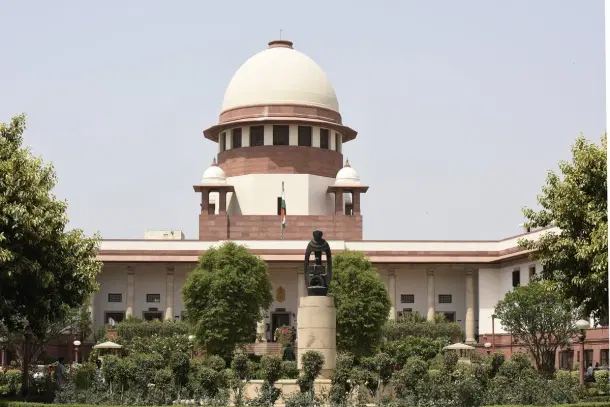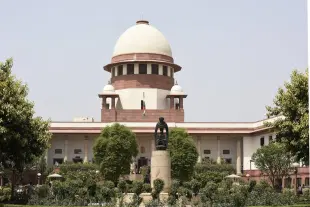News Brief
Centre Seeks Review Of Supreme Court's Mineral Royalty Judgment: All You Need To Know
Kuldeep Negi
Sep 12, 2024, 03:02 PM | Updated 03:03 PM IST
Save & read from anywhere!
Bookmark stories for easy access on any device or the Swarajya app.


The Centre has approached the Supreme Court seeking a review of a nine-judge bench judgment that allowed states to collect royalty on extracted minerals and to levy tax on mineral-bearing land.
Earlier on Wednesday (11 September), the Supreme Court said it will set up a bench to hear subsequent pleas of mineral-rich states like Jharkhand seeking to recover royalty and tax dues on mineral rights and mineral-bearing lands worth thousands of crore of rupees from the Centre and mining firms, Economic Times reported.
On 25 July, a nine-judge bench headed by Chief Justice D Y Chandrachud, in a majority 8:1 verdict, had ruled that the legislative power to tax mineral rights vests in states and not Parliament.
In a subsequent order on 14 August, the Supreme Court clarified the judgement will not have prospective effect and permitted mineral-rich states recover from the Centre and mining firms the royalty and tax dues on mineral rights and mineral-bearing lands worth crore since April 1, 2005 over a period of 12 years.
Furthermore, the Centre has reportedly roped in Madhya Pradesh as a co-petitioner in its plea to seek a review of the 25 July ruling in an open court hearing.
It argued that the issue raised by it “pertains to the fundamental rights of the citizens of the country and raises larger issue of public interest and grave injustice would ensue if the application for oral hearing of the review petition is not allowed”
Representing several mineral-rich states, senior advocate Rakesh Dwivedi reportedly requested early listing of pending cases relating to dues before a regular bench to follow the nine-judge verdict and give the intended financial relief.
"Review of a Constitution bench judgment," remarked Chief Justice D Y Chandrachud in response to the review petition, Economic Times reported.
Advocate Dwivedi said that the review plea reflects the reluctance of public sector undertakings (PSUs), which have profited significantly from mineral extraction without paying royalty or tax on mineral-bearing lands for decades, to settle the minimal amount fixed by the Supreme Court.
PSUs are likely to face a massive financial burden, with the repayment amount, excluding interest, estimated at Rs 70,000 crore.
If arrears owed by private sector companies since 2005 are included, the total rises to Rs 1.5 lakh crore.
The states set to benefit the most from these dues include Jharkhand, Odisha, Chhattisgarh, Karnataka, Andhra Pradesh, and Rajasthan.
The Union government has reportedly urged the Supreme Court to implement the nine-judge bench ruling prospectively, arguing that retrospective application would create a burden humongous enough to ruin many PSUs and industries, dent the larger economy and send prices of almost every product soaring.
Kuldeep is Senior Editor (Newsroom) at Swarajya. He tweets at @kaydnegi.





